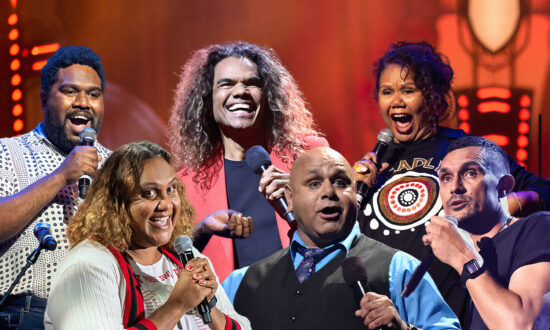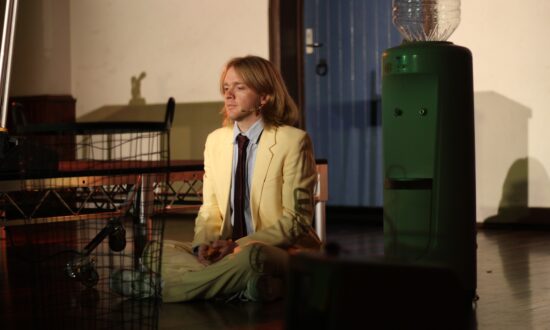This show has a simple premise, but its execution is where it shines. DJ Groove Terminator (aka Simon Lewicki) brings the beats and Soweto Gospel Choir brings the melody, with projected visuals setting the club scene.
At first glance, the pairing of the choir with electronic dance music seems a little unusual, however it doesn’t take long for the relationship to become clear. African and North American music traditions feature call and response, with heavy reliance on rhythm and repetition. These elements form the bread and butter of house music styles and, in turn, this show.
History of House is non-stop high energy from the first beat – the around 900-strong audience at Gluttony outdoor venue The Fantail doesn’t stop moving throughout the performance. They are mesmerised by the charisma of each singer as they take their turn coming to the front of the stage to belt out a song, play some beats or offer up dance moves. There is always something happening – so much so that by the end it feels like a quick 90-minute show.
Some soloists are stronger than others, although this does not dampen the crowd’s enthusiasm for each performer. The transitions between the tracks show Groove Terminator’s experience as he expertly keeps up excitement levels throughout.
Beginning in the ’70s with Chic’s “Le Freak”, History of House traverses 30 years of house music, from the time before it was even called “house”. Its disco roots are explored through hits such as Dan Hartman’s “Relight My Fire” and Donna Summer’s “I Feel Love”.
The 1980s brings club classics “You Spin Me Round (Like a Record)” by Dead or Alive, “1999” by Prince and “Sweet Dreams (Are Made of This)” by the Eurythmics, along with the soul influences of Aretha Franklin’s “Respect” and “Think”. Groove Terminator and the choir’s own version of a song sung in Zulu is a nice touch.
The show closes out with “the last great decade of house”, including ’90s hits “Everybody’s Free” by Rozalla and “Let Me Show You” by Anton Powers and K-Klass.
The joy in the audience reflects the safe space house music and clubs presented for many people, particularly those on the fringes of society. This show also subtly highlights the interconnected relationship between the arts and political and social movements with songs such as Yothu Yindi’s “Treaty”.

Get InReview in your inbox – free each Saturday. Local arts and culture – covered.
Thanks for signing up to the InReview newsletter.
The demand for one more song – leading to a fitting and clearly highly anticipated encore – demonstrates the resonance History of House has with the multi-generational audience as they re-create a house club at the Adelaide Fringe.
History of House is playing at The Fantail at Gluttony until March 17.
Read more 2024 Adelaide Fringe coverage here on InReview.
Support local arts journalism
Your support will help us continue the important work of InReview in publishing free professional journalism that celebrates, interrogates and amplifies arts and culture in South Australia.
Donate Here




